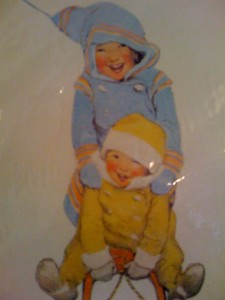Friday, February 11, 2011
Early Learning
Brain development starts at birth and continues on throughout the life of the child. The most accelerated rate of brain growth occurs during a child’s preschool and early primary years. Although children of this age should not be put in a situation where learning is forced or rote, experiences for learning at a natural pace with proper stimulation are important. Consideration should be placed upon the abilities of the individual child, for they all mature and develop at a different pace.
Preschool children are experiencing some of the most accelerated growth and development (between birth and seven). Although they can experience burnout and difficulties if rushed to learn in the traditional “school” mode, it does them a great disservice to withhold appropriate learning experiences from them. Their environment and the people they are around all day long should be providing them with experiences and resources to learn. Essentially, everything in real life is a learning experience. Through interactions that allow them to use all their senses, to taste, touch, feel, hear, and smell, the wiring of the brain connects through neuron development and structure. It is important to capitalize upon the things that interest the child as they interact with you and adults. Providing resources for them to create, and limiting their involvement with peers for the purpose of entertainment purposes also facilitates brain development. The more purposeful activities and moments a child experiences during the day, the greater the potential for creating a child with a well-developed brain and superior intelligence.
Daily life provides many opportunities for children. They can be taught to write using a stick in the sand or chalk on a sidewalk. Counting trees in a park and categorizing them into different types develops math skills. Cooking with them, even at the tender age of four, teaches them math concepts and how things work from cause to effect. Growing a container garden is a great science experiment. And going on a field trip to a historic park or museum can establish the foundation for history and learning about the roots of the country in which they live.
Learning is extremely important — and so is how learning is facilitated. Pushing a preschool child with workbooks, pencil, and paper is not best for a child’s young nervous system, but guided and purposeful learning in other ways is priceless. In the same way, passive entertainment like television or movies lulls the child into complacency and is not equivalent to learning experiences offered in real life.
Teaching young children through their senses, through movement, and by doing things that help them gain motor skills can be done purposefully, yet at a pace that does not push the child beyond his or her natural abilities. Make every moment and opportunity in a child’s life one that is purposeful and useful to brain development. Allow them to experience life to the fullest! Along the way, take a moment to thank God for the opportunity you’ve been given to teach your children about life!
Subscribe to:
Post Comments (Atom)


No comments:
Post a Comment